Utility payments by meters. Payment of utilities: how to check the correctness of charges and save? Clarifications from the Housing Inspectorate of the Moscow Region
Rent - payments accrued
for or social rent, as well as the amount of rent depends on the established tariffs for communal services, the total area of the apartment and the number of residents living in it, the area of the premises related to the apartment building, presence or absence of meters and other nuances.
Russian Government Decree No. 354, which came into force in September 2012, revised the principles for calculating rent. The adopted document, as well as the abundance of various decrees already issued by local authorities, has sowed confusion even among many representatives of management companies and HOAs, not to mention ordinary consumers.
One must think that the previous events are just flowers; we will reap the berries later. In this regard, we decided to tell you how rent should be calculated from September 1, 2012.
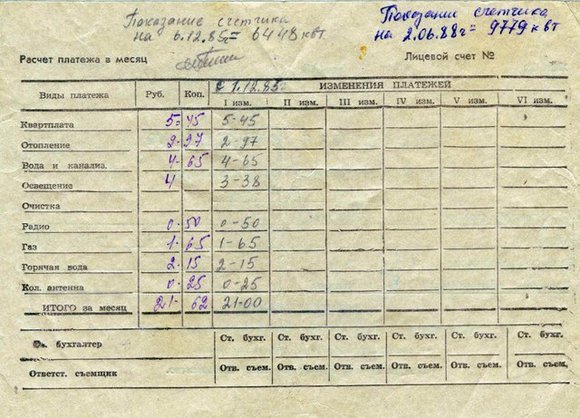
Our rent was once positioned as the most affordable in the world. Now
the state has other goals and objectives.
I. Rent - main changes since September
2012
▪ During the calculation of rent, each of utilities is divided into two types:
behind door-to-door consumption and on needs at home.
▪ Residents who have meters must compensate with rent the difference in energy resources between the collective and apartment meters in proportion to the area of your home in the total area apartment building, and not in proportion to the volume of utilities consumed by your apartment.
▪ The rent of residents who do not have apartment units, as well as residents who do not have either collective or apartment accounting units, will now still be paid payments for utility resources spent on the needs of the home. Appropriate utility consumption standards have been developed for them.
▪ The rent of owners who do not live in their apartment and do not consume utilities must now also include payments for energy resources spent on the needs of the home.
▪ When calculating rent, payments for centralized thermal energy must be entered based on actual volumes consumed, or within heating season, and not within 12 months - regardless of the presence or absence of metering devices in the house. However, in Rostov region This principle of calculating payments for heat will be implemented from January 1, 2015 (see details below).
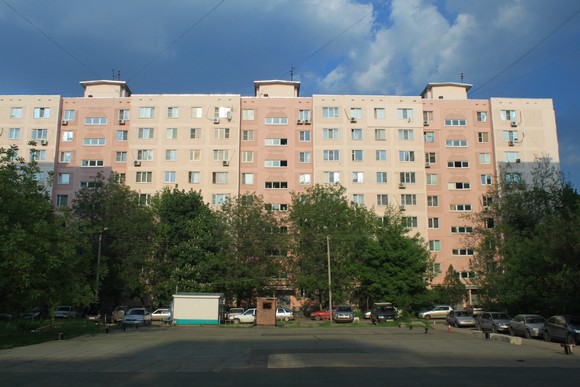
II. New principles for calculating rent
1. Payment for centralized heating until 2015
(Read also main article: ).
On September 10, 2012, the Governor of the Rostov Region Vasily Golubev, taking advantage of the powers granted by the Russian Government to the regions, signed Resolution No. 878, according to which in the Don in 2012-14 the previous procedure for calculating heating payments according to Russian Government Decree No. 307 will be maintained.
RF PP No. 307 provides for uniform monthly payments at the rate of 1/12 - both in houses equipped with collective meters, and in housing where they are not available. At the end of the year, in houses with metering units, payments should be adjusted taking into account actual readings.
When calculating rent, the following formulas are still used:
Formula No. 1: payment = TXSsq.XN,
Where T- tariff for thermal energy (per 1 square meter);
Ssq.- total area of the apartment; N- the standard for the consumption of utilities provided for when calculating rent, valid until the entry into force of Russian Government Decree No. 354. In the Rostov region it is 0.015 gigacalories per month.Formula No. 2: payment = S sq. x V consumption x T,
Where S sq.- total area of the apartment;
V consumption- average monthly consumption volume for the past year per 1 sq. meter of housing from the total volume of heat consumed by the entire building, including places common use;
T- tariff for thermal energy.
If the house does not have a collective metering unit for heat energy, the rent is calculated accordingly according to formula No. 1; if the equipment is installed, but not in any apartment (office, store and other non-residential premises) individual counter, - according to formula No. 2. At the same time, formula No. 2 is applied when calculating rent for residents who have both collective and apartment meters.
In buildings with “mixed” apartments: some have individual metering devices, others do not, while there is a collective metering unit, residents who do not have an individual account are charged rent according to formula No. 1, and meter owners - according to formula No. 2.
At the same time, “regulators” still should not cover the energy resources used for the needs of the house with rent until 2015. When calculating rent, all other utilities will be calculated in a new way.
2. Apartment gas consumption
If there is no meter in a house with autonomous heating produced in the apartment itself, as well as the hot water supply produced in the apartment, when calculating the rent you will have to use the following formula:
P sq.=﴾ (Sq. x Nheat) + (L × Nfood) + (L × Nwater)) x T
Sq.– area of the apartment;
Nheat- standard for heating housing;
L- number of residents;
Food- standards for food preparation;
Nwater- standard for preparation hot water;
T- tariff.
If heat supply and hot water supply are supplied centrally, then the rent should be calculated according to a simplified version:
P sq. = L×Ned x T,
Where L - people living in the apartment;
N food- gas consumption standard established for cooking;
T- tariff.
As we see, babies living in the apartment will also have to pay for the blue fuel burned during cooking, although matches are not a toy for children.
If you have an individual meter, when calculating rent, gas payments are calculated in the same way as for cold/hot water and heating:
P count x T, Where P sch.- meter readings, T- tariff (Clause 42 of Resolution No. 354).
3. Apartment consumption of cold/hot water, electricity supply
▪ In the absence of an individual meter payment = L x N x T, Where L N- utility consumption standard, T– tariff (Clause 42 of Resolution No. 354).
▪ If there is an individual meter payment for apartment consumption = P account. x T, Where P sch.- meter readings, T – tariff (Clause 42 of Resolution No. 354).
4. Payment for apartment sewerage
When calculating rent for centralized sewerage services in the absence of an apartment meter at wastewater(those are also available), readings are taken from apartment meters of consumed cold and hot water (Clause 42 of Resolution No. 354). The logic of the legislators is clear: as much water comes into the apartment, the same amount will flow out of it. In this case, the formula is the same as when calculating the volumes of cold and hot water consumed by an apartment, as well as electricity: P count x T, Where P sch.- meter readings, T- tariff.
In the absence of one or all apartment appliances for cold and hot water, when calculating the rent, the formula is used: payment = L x N x T, Where L- people registered in the apartment, N- standard for apartment consumption, T- tariff.
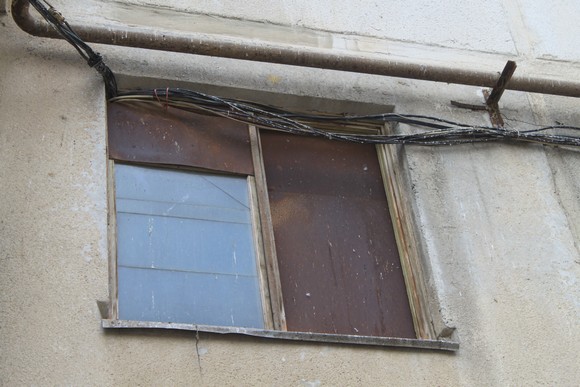
Now, utility resources stolen from residents will be officially referred to as expenses for the needs of the home in their rent receipts.
III. Calculation of rent for house needs
1. General situation
The needs of the home are the main “invention” when calculating rent, which citizens who previously did not pay for “utilities” according to meter readings will have to endure. The logic of legislators is that the operation of a house also requires utility resources - to light the same entrance, wash floors in common areas, water
They are spent on the functioning of the entire building as a whole, and not on an individual apartment, and therefore must be included in the rent in proportion to the area of housing in the total area of the house. Housing maintenance is calculated using a similar principle.
The new rules for the provision of public services are based on the thesis that both meter owners and “regulators” must compensate for the “needs of the house”, including property owners who, in principle, do not live in the house (you do not live, but the facility must be maintained in decent condition).
The presence of a collective and apartment meter when calculating rent helps to determine the volume of energy consumed in common areas. And then, using formulas, it is distributed among apartment residents based on their area.
2. Calculation of apartment payments for house needs
In houses both without a collective meter and those with a collective meter, payment for utility services spent on general needs is calculated using the formula:
Payment = V house x T,
Where V at home- the amount of resource spent by this apartment for the needs of the house;
T- tariff.
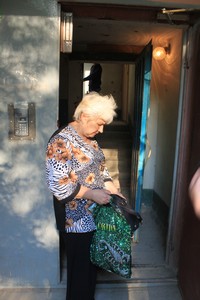
Since September 2012, this Ilyich light bulb has been burning for no reason,
but for the needs of the home.
We emphasize: V at home- energy resource that is consumed by a given apartment in common areas, but in no way inside the apartment itself. As we can see, in general the formula is simple. But it’s too early to rejoice, the problem with the accrued rent is calculating the volume of resources spent on the needs of the house (that is, the value V at home for each individual apartment).
The problem is that often some utility resources in the house are used to produce other utility resources (for example, gas, electricity and cold water - to produce hot water and thermal energy). At the same time, let’s say that some resources have meters, but others do not; some apartments have individual metering units, while others do not. This is where your head starts spinning when calculating rent.
At the same time, our legislators, it seems, specifically decided to force us to roll the square one and wear the round one when calculating rent. They should have developed a formula that would first allow them to calculate the amount of the common house resource per 1 square meter apartments (in each apartment of a given house it should be the same!), after which we would calmly calculate the rent, multiplying the resulting value by the area of each housing and the tariff. Instead, building managers are forced to count V Houses for each apartment.
3. Calculation of the apartment-by-apartment volume of energy resources consumed for the needs of the house
In houses that do not have collective meters
V at home = N houses x S total. x S apartments / S neighbors
Where N Houses- the standard for the consumption of communal resources established for the needs of the house (per 1 square meter);
S total- area of premises of the common property of the owners (attics, basements, entrances, elevator rooms, etc.);
S apartments- the area of the apartment where the rent is calculated;
S neighbors- area of apartments and non-residential premises of the house that are not occupied
in collective ownership.In houses with a collective meter
Cold water:
Vhouse = (Vd – ΣVsoft – ΣV residential – ΣV residential – ΣVgv – ΣVcr) x Si/Sob.,
Where V d- volume cold water, consumed by the entire house (that is, collective meter readings);
ΣV soft- the volume of cold water consumed by all non-residential premises;
ΣV vein- the volume of cold water consumed by apartments that are not equipped with an individual meter;
ΣV living area- the volume of cold water consumed by apartments equipped with an individual cold water meter;
ΣV gv- volume (quantity) of hot water (in case self-production hot water directly in the house (in the absence of centralized hot water supply);
ΣV cr- determined in accordance with paragraph 54 of the Rules, the volume of cold water used by the contractor in the production of utility heating services (in the absence district heating);
Si- the total area of the apartment in an apartment building;
S about- total area of all residential premises (apartments) and non-residential premises
in an apartment building.Hot water, gas, sewerage and electricity:
Vhouse = (Vd – ΣVsoft. – ΣV living.n. – ΣVliving.p. – ΣVcr) x Si/Sob.,
Where V d- the amount of resource consumed by the entire house (collective meter readings);
ΣV soft- the volume of communal resources consumed by non-residential premises;
ΣV lived.n.- the volume of utility resources consumed by apartments without meters;
ΣV living area- the volume of communal resources consumed by apartments with meters;
ΣV cr- volume of the corresponding type of communal resource ( Electric Energy, gas) used for the production of heating and (or) hot water supply inside the house (in the absence of centralized heat supply and (or) hot water supply), which in addition was also used by the contractor for the purpose of providing consumers with utility services for electricity supply and (or) gas supply;
Si- total area of the apartment;
S about- the total area of apartments and non-residential premises that do not belong to the common property of homeowners.
![]()
I wonder if the authors of Resolution No. 354 would like to personally calculate the rent using the above formulas, at least for the homeowners of this housing stock?
IV. Calculation of rent for housing services
The new rules for the provision of utility services to citizens have not in any way affected the principles of cost calculation. housing services during the calculation of rent. At the same time, over the past few years, the federal authorities have adopted a number of other laws and documents, which are also very important to remember.
1. Payment for housing maintenance
▪ If the property owners have previously elected, they set the tariff for contained on one's own. This is stated in paragraph 17 of the Government of the Russian Federation No. 491: “Owners of premises are required to approve at a general meeting a list of services and works, the conditions for their provision and implementation, as well as the amount of their financing.”
▪ If the house is managed by a management company, the tariff is approved by the owners (clause 32 of resolution No. 491) for a period of 1 year.
▪ If there is a HOA or housing cooperative in the house (clause 33 of resolution No. 491) given value approved by the board of the partnership or housing construction cooperative.
▪ In case of direct management - it is established “by itself” on the basis of agreements concluded between residents and contractors (clause 32).
Let us note: this amount should not be taken arbitrarily as part of the rent; owners are obliged to fulfill a number of requirements for the maintenance of housing imposed by the state. We outlined the list of mandatory work and services performed in an apartment building in the article. At the same time, residents have the right to provide for themselves various additional services (up to armed guards at the entrance or governesses with children decorously walking around the yard).
The municipal tariff for housing maintenance set by the authorities is a fiction, since the cost of work in each individual house is individual. Moreover, this rent amount will be individual for each individual organization in relation to the same house (if, of course, we are talking about honest work without deception and postscripts). Because, for example, during the same garbage removal, one company will find the opportunity to use its own special equipment, another will rent it, and a third will hire a third-party contractor.
If there are still non-privatized apartments in the building and, when calculating the rent, the tariff for maintaining the house turns out to be higher than the municipal one, the existing difference must be compensated by the city authorities from the budget. In accordance with Article 155 of the Housing Code of the Russian Federation, “... if the amount of payment paid by the tenant of the residential premises is less than the amount of the payment, the remaining part of the payment is paid by the landlord of this residential premises in the manner agreed with the management organization.”
If the owners, who had previously chosen the form of house management, did not set the tariff at the general meeting (a situation typical for most cases), in accordance with Article 158 of the Housing Code of the Russian Federation, “... this amount of payment is established by the authority local government" In houses that have not chosen in accordance with paragraph 34 of the Government of the Russian Federation No. 491, the amount of payment is also established by the local government (i.e. municipal).
At the same time, the management organization is obliged to operate the housing in accordance with legal requirements. No house in budget Money for these purposes, just as the absence of an apartment management agreement concluded with the owners cannot serve as a basis for non-compliance with federal laws.
I wonder what Management Company may also try to challenge the approval in an apartment building by increasing the rent for homeowners, including the authorities. To do this, it is necessary to justify the estimate and submit a corresponding letter to the local authorities with a request to establish a personal rent in the house by administrative act.
In accordance with Article 156 of the Housing Code of the Russian Federation, “payment for the maintenance and repair of residential premises is established in an amount that ensures the maintenance of common property in accordance with the requirements of the law.”
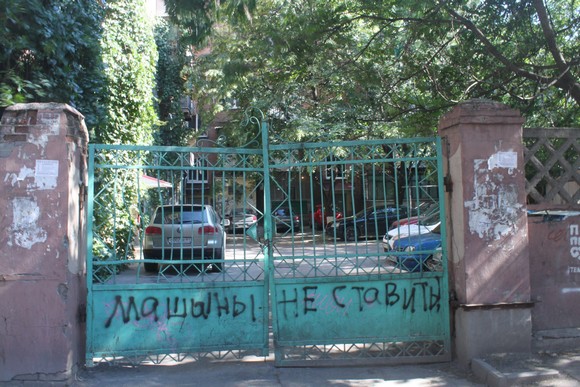
In addition to the mandatory work provided for by law, the management company can also be required to provide additional services - for example, closing the yard to the passage of strangers.
3. Payment for current repairs
In some cases, the tariff for “maintained housing” in rent receipts is divided into two columns: housing maintenance (which means organizational work, provision of apartments with utilities, elimination of accidents in housing and communal services or emergency repairs) and routine repairs associated with work to eliminate “accumulated” defects in the building. It is advisable to take such measures in particular if the house has many defects. In accordance with Article 44 of Federal Law No. 123, the decision on current repairs must be accepted by at least half of the votes of the owners.
3. Payment for major repairs
As Article 44 of Federal Law No. 123 states, the decision on major repairs must be made by a 2/3 vote of the owners. At the same time, any house can collect money for years major renovation, including the corresponding line in the rent. Mandatory participation in various state or municipal programs for major repairs is not necessary; it all depends on the will of the majority of owners.
4. Payment for installation of a collective meter
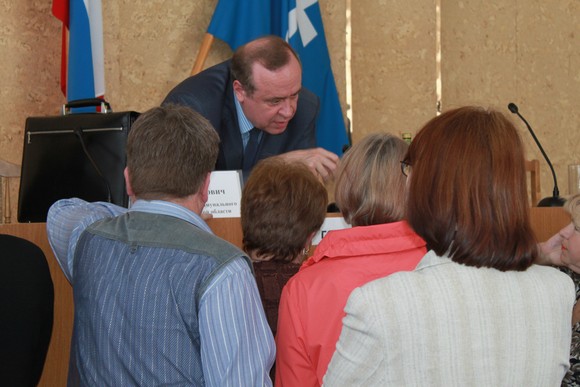
Minister of Housing and Communal Services of the Rostov Region Sergei Sidash is encouraging building managers to install meters and save rent.
As a rule, this service is included in the rent as a separate line, although it can also be performed as part of the maintenance and repair of housing - if it is provided by the HOA or management company. In accordance with the adopted Law on Energy Saving, after July 1, 2012, resource supply organizations are required to install meters forcibly.
At the same time, monopolists must provide a five-year loan for this service or a loan for a shorter period (including its repayment in the rent), if the owners feel such a need. Moreover, the accrued annual interest cannot exceed the refinancing rates of the Central Bank.
In reality, the process promises to move forward with great difficulty. Firstly, the equipment is not beneficial to the monopolists themselves: after its installation, many residents will begin to save rent by reducing resource consumption.
Secondly, most resource providers do not have their own funds, and from the point of view of banks
(from whom it would be possible to borrow money, and then lend it to residents, repaying the debt to banks through increased rents), monopolists are considered bad borrowers.
In addition, as we noted, the law does not require “overloading” the rent with an abundance of annual interest, meanwhile, money borrowed from another person, which you borrowed from a third party, in theory cannot be “cheap”.
V. Maximum rent increase
The unpopular measures taken do not prevent the state from simultaneously putting up all sorts of obstacles to rising rents. The general situation is influenced by a great many factors: the general economic situation in the country, region, city, inflation rate, growth of pensions and salaries, the approach of the next elections, the blowing of the wind in higher authorities.
Systematizing all the details is problematic. Let us only note that in relation to an individual person (family) in any city and region, proportions are provided: the rent cannot exceed a certain percentage of his income. Otherwise, he has the right to receive a budget subsidy.
![]()
Finding the truth in the rent charged is always difficult.
VI. Rent: pearls of legislators
▪ When calculating rent in problem buildings most of The energy resource de jure spent for general needs will consist of water pouring out of dilapidated communications, heat lost by the building through cracks in the walls, electricity stolen by individual residents and businessmen from the stalls and shops adjacent to the house.
▪ Only home owners and (any owner is responsible for the condition of the property, which is fair in principle), but not the city authorities, who manage non-privatized apartments, should compensate for such “needs at home” from their wallets with rent. Instead, citizens who are registered as low-income should subsidize energy thieves and Afon from the management company, who squander other people's energy resources.
▪ Theoretically, breaking down payments into utilities consumed by the apartment and services for the needs of the house could make invoices more transparent. However, the main “ravine” of the current rules for the provision of utility services is the “kilometer” formulas, which must be applied when calculating rent, especially for “utilities” that go to the needs of the house, with an abundance various sizes. Rhetorical questions arise: does each of the management companies have all the necessary data and does each want to use it when calculating rent for thousands of its clients?
▪ The deadline for paying rent (transferring money to the management company or HOA) is the 9th day of the current month for the previous month - in accordance with Russian Government Decree No. 354 (clause 66). In turn, management companies and homeowners associations must transfer all payments for utilities spent by residents to the monopolists also before the 10th - in accordance with Russian Government Decree No. 530, which is even technically impossible, since the time period for transferring money from one account to another is from several hours.
▪ At the same time, in accordance with the Decree of the Government of the Russian Federation No. 354, management companies and HOAs can influence persistent defaulters for housing and communal services by turning off their gas, electricity or water if the amount of debt has been accumulated for at least three months (previously - for six months ). And at the same time, they must carefully and monthly transfer to the monopolists 100% of payments for utility resources consumed by the house.
▪ In connection with the current situation (see paragraph above), residents will probably be very “pleased” to learn that, in accordance with paragraph 29 of Resolution No. 354, amended in 2011, management companies and HOAs must “include” in the accrued rent expenses for the “war” with malicious debtors. And to successfully influence marginal consumers, expensive additional expenses are required - state fees in the courts, legal services, which are complex in most cases. apartment buildings turning off sewerage, water, gas (the lights going out are unlikely to have any effect).
▪ Homeowners who fear that their payments for utility services are being stolen by the management organization are given the opportunity to enter into direct contracts with suppliers of water, heat, and electricity by making an appropriate decision at a general meeting. But at the same time, the management organization is still obliged to enter into a contract with the monopolist and bear responsibility for paying for utilities for the needs of the house.
▪The changed paragraph 38 of Resolution No. 491 kindly invites management companies, most of which have accumulated multimillion-dollar debts or are simply barely making ends meet, to enter into energy saving agreements with owners and earn money through expensive multimillion-dollar investments in apartment buildings. Homeowners associations, 99% of which have no equity, no property.
▪ According to one of the developers of unpopular laws and regulations in the housing and communal services sector (in particular, resolutions No. 307, 354, 491), who visited Rostov in 2011, even in the current conditions, intra-house housing and communal services represented by management companies and HOAs can survive. According to a number of Rostov building managers, this thesis can also be attributed to the pearls of legislators.
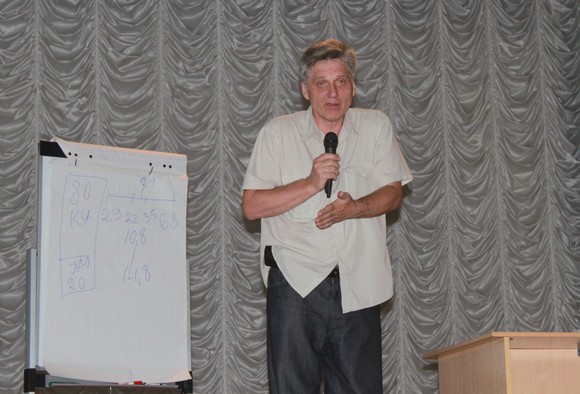
VII. Rent: interesting facts
▪ The largest shortfall when calculating rent in the Rostov region. The owner of the property was asked to pay this amount for one month for lighting common areas, because electricity was stolen from the house.
▪ Meanwhile, Rostov Vodokanal seems to have decided to take advantage of the current and future popular discontent in the area of rent payments. The company announced that the price was three thousand rubles for one insert.
▪ For several years, the federal authorities have been talking about the forced inclusion of capital repair services in the rent of citizens. In response, Russians experience attacks of déjà vu: once upon a time, it seemed like this had already happened, but the money was stolen locally... As it happened, in turn, he commented on the situation, “I can’t account for “where the money went” paid by the owners for this service in previous decades. One thing is clear: the previous system of distributing collected funds without a targeted approach to each home was ineffective..."
Housing and communal services / Tariffs for housing and communal services
Payment of utilities is a serious and constant line of any family budget. How to determine that an error has crept into your payment slip and you are overpaying? The State Housing Inspectorate of the Moscow Region tried to collect useful, practical tips on saving on utility costs.
Payment of utilities: instructions for action
Before we talk about the main errors in calculating payments, we will give short instructions for action. It will work in all of the following cases.
So, if there is reason to believe that you are overpaying for services, the first thing you need to do is contact the management company. They are obliged to check the correctness of the accruals directly upon the consumer’s request and immediately, based on the results of the check, issue documents with correctly accrued payments. At your request, they must be certified by the manager’s signature and seal.
If you contact the management organization in writing, it is obliged to give a written response within three working days whether your request will be satisfied or not and, in the latter case, explain the reasons for the refusal.
In practice, if errors are discovered in accruals, companies almost always strive to resolve the issue as quickly as possible. If the company ignores the recalculation requirement, feel free to contact the State Housing Inspectorate, fortunately, all supporting documents will be in your hands.
Utilities: tariff for maintenance and repair of common property
If the house is operated by a management company, the amount of fees for maintenance and repairs is established taking into account the proposals of the management company for a period of at least one year. If the fee increases repeatedly during the year, this is an alarming call and a reason to understand the situation. If the house has an HOA or housing cooperative, the amount of this fee is determined by the governing bodies in accordance with the charter.
Who sets the fees for additional services?
Rendering additional services- the work of a concierge, security of entrances or collective parking lots, the use of an intercom - and the amount of payment for them is the “diocese” of the general meeting of owners. Without a decision of the general meeting, additional lines cannot appear or change. After the decision of the general meeting, an agreement is concluded. If you do not agree with the decision of the meeting, you have the right to go to court.
Where can I check utility rates?
You can check tariffs for utility services on the website of the regional committee on prices and tariffs or using a special service of the Federal Tariff Service.
Revision of tariffs for utility services is possible no more than once a year (except for cases when orders from supervisory authorities or court decisions are issued).
It also doesn’t hurt to check the number of residents and the square footage of the apartment indicated on your payment slip. If the data does not correspond to reality, provide the organization that makes the accruals with an extract from the house register and a certificate of ownership for correction.
How to transmit meter readings?
If metering devices are installed and put into operation, you pay only for actual consumption (including for general household needs). It is necessary to take and transmit apartment meter readings in a timely manner.
There are different ways to do this: on the websites of the management company or resource supply organization, including through personal accounts, using special forms for transmitting readings (tear-off spine on a single payment document), through a payment terminal, client office, etc. You also need to check the data with your receipt: are the numbers indicated accurately and are the calculations according to the standard?
How is the heating utility fee calculated if there are common house meters?
One of the most common errors in charges is calculating heating fees according to the standard, without taking into account the readings of common house meters. Remember, in the first year after installing a collective meter, the fee continues to be charged according to the standard, then it is calculated based on the average consumption of the previous year according to the readings of common house metering devices. In this case, once a year the fee must be adjusted based on the actual volume of resource consumption.
How are utilities paid if there are no meters?
In this case, calculations follow the standards. They are higher than the actual cost, so you have to pay more. And from January 1, 2015, standards for the consumption of utility services approved by the Ministry of Housing and Communal Services of the Moscow Region will come into force. In houses built before 1999, the standards will increase. But in new buildings, the standard for heat consumption will decrease so much that the total payment for housing and communal services will decrease, even despite the increase in the standard for consumption of other resources.
In addition, it is important to remember that since 2015, the Russian government intends to encourage citizens to install metering devices, gradually increasing the standards to 1.6 times (since 2017).
There is only one conclusion: meters for electricity, gas, hot and cold water must be installed before the end of 2014. And be sure to check the availability of common house meters.
Who installs and pays for the installation of common house meters?
By federal law about energy saving, their installation is mandatory. Since these meters will be part of the common property, payment for work and equipment is divided among all owners of premises in the apartment building. The decision to install meters and collect the required amount is made at a general meeting of owners. Resource supply organizations must equip homes with metering devices.
How is the payment for hot water calculated in houses with an individual heating point?
In houses with an individual heating point (boiler room), payment for heat is charged according to general rules, however, the payment procedure for hot water is changing. If the bills of residents of houses with centralized heat and water supply have the line “hot water supply”, then houses with their own boiler room do not have it. Instead, the hot water charge consists of two items: cold water supply for hot water supply (CW for DHW) and water heating.
What errors occur when calculating fees for general house needs?
There are frequent cases of overestimation of the volumes of electricity, hot and cold water provided for general household needs. In addition, the management company does not have the right to issue bills for heating for common house needs (this was not initially provided) and sewerage for common house needs (the fee has been abolished by the Government of the Russian Federation since June 2013).
How to recalculate utility bills due to the temporary absence of consumers in the apartment?
If the apartment does not have individual metering devices, then if the consumer is absent for more than five full calendar days in a row, you can request a recalculation for cold and hot water, sewerage (sewage), gas and electricity supply. You will only have to pay for heating and gas supply for heating residential premises, as well as utilities for general house needs.
Recalculation is carried out within 30 days after the end of the period of temporary absence. Applications for recalculation are sent to the management organization. The application shall indicate the last name, first name and patronymic of each temporarily absent consumer, the start day and the end day of the period of his temporary absence from the residential premises. Documents confirming the consumer’s temporary absence are attached to the recalculation application. This could be, for example, tickets, hotel bills, a certificate from a sanatorium, a travel certificate, etc.
How to achieve a recalculation of utility bills if the service is provided of poor quality or intermittently?
Utility fees are reduced by up to complete liberation from it if you receive services of inadequate quality (hot water or air temperature in the room is below normal, etc.) or services are provided intermittently for more than a specified period.
Requirements for the quality of public services and the permissible duration of breaks are contained in Appendix 1 to the Decree of the Government of the Russian Federation No. 354 of 05/06/2011.
For example, payment for cold and hot water supply is recalculated if there is no service for more than 4 hours. Recalculation is also made if the hot water temperature deviates from the standard (60 -75 degrees) by more than 3 degrees during the day and 5 degrees at night.
Be sure to know: the fact of providing a poor-quality service must be confirmed by a consumer’s application to the emergency dispatch service, recorded in the registration log, and an inspection report.
If an accident occurs in a house, as a result of which the provision of services was stopped for a period longer than established, the management company is obliged to automatically recalculate the entire house. If this does not happen, you need to apply to the management company. If she does not recalculate, the citizen has the right to file a complaint with the State Housing Inspectorate.
What to do if two utility bills arrive?
This situation may arise if citizens have chosen a new management company or created an HOA, and the previous organization does not want to give up the house. Or citizens re-elected the Criminal Code, but in violation of the procedure, while new company starts issuing invoices, although the previous one should do it. Outright fraudulent schemes are also possible.
At the same time, not paying anyone is not an option. For non-payment of utilities for a long time, the house can simply be turned off. What to do?
The first step: contact your local administration for clarification. Second: in order to issue you utility bills, the management company is required to enter into an agreement with the resource supply organization. And, of course, the resource supplying organization has the right to enter into a service agreement specific house with only one management organization. Therefore, a call to resource officers will answer the question of who to pay.
At the same time, you have the right to write an appeal, in electronic form, to the State Housing Inspectorate of the Moscow Region and the prosecutor's office. They will always be able to check the legitimacy of management organizations and evaluate which one is acting legally.
Payments for utilities using a single payment document through the EIRC
To ensure transparency in the activities of management companies, the regional government decided to switch to settlements using a single payment system through a single information and settlement center.
The form of a single payment has been approved by the regional government. It indicates the mandatory and additional payments accepted general meeting owners, volumes of services consumed, including for general house needs, amounts of accrued and received money, information on recalculations, data on utility service providers. This was done so that residents understand how much and what they pay for.
The unified information and settlement center (MosoblEIRTS) was created on the basis of Mosenergosbyt OJSC, its founders include the regional government. For any questions, you can contact hotline EIRC: 8-800-555-07-69.
Payments to the EIRC are “split” automatically and in a targeted manner go to resource suppliers, without ending up in the pockets of unscrupulous building managers.
Payment of utilities through the EIRC: what happens to benefits? Is an additional agreement needed?
Residents do not need to enter into additional agreement with EIRC. The center operates within the framework of the execution of an agency agreement with management companies and resource supply organizations. Re-registration of benefits is also not required.
How can you save resources?
You can save on utility bills by reducing resource consumption. In particular, insulation helps reduce heat loss interpanel seams, installation modern windows and heating radiators, placement of heat-reflecting screens behind radiators, glazing of balconies and loggias.
To save on electricity bills, you should switch to a two-rate “day-night” tariff, replace conventional incandescent lamps with energy-saving ones, use electrical appliances with an energy efficiency class of at least “A” and do not place the refrigerator next to the radiator and stove.
In addition, you should not neglect simple measures: turn on not all, but only the necessary lamps, disconnect devices from the network instead of “putting them to sleep,” repair water taps, etc.
